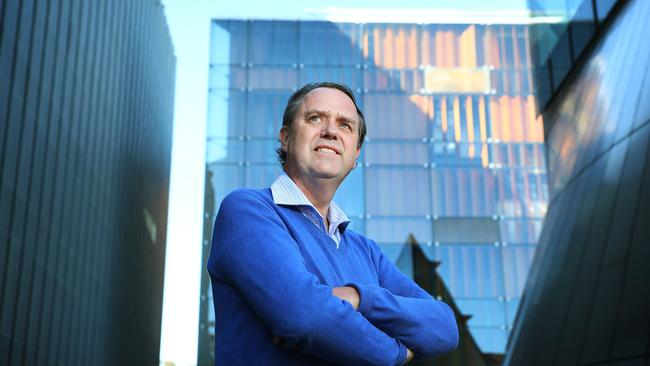Trans procedures: ‘red lights flashing’ for hospitals
Hospitals may face ‘massive damages’ if trans clinics fail to fully inform patients on risks.

Public hospitals may face “massive damages” for negligence if their transgender clinics fail to fully inform young patients about the risks of treatments such as cross-sex hormones, a prominent legal academic says.
“The red lights are flashing all over the world on these issues, and governments and the wider health community (not just gender specialists) need to take responsibility,” said Patrick Parkinson, Queensland University’s dean of law and a child protection expert.
He said it was unclear whether the law required clinicians to go along with the dominant pro-trans “affirmation approach”, even if they believed it was not in the young person’s best interests.
In many gender clinics, the self-declared trans identity of children and adolescents is embraced in the belief this is best for mental health.
Withholding treatment is not “a neutral option” because this may worsen depression and suicide risk, according to guidelines promoted by the country’s biggest gender clinic, at the Royal Children’s Hospital in Melbourne.
But there is growing international concern that troubled, often same-sex-attracted, teenage girls are being primed by social media to come out as trans boys, seeking irreversible testosterone treatment and sometimes mastectomies, with the risk of health complications such as bone-density issues, cardiac problems and infertility.
Meanwhile, Scott Morrison and Health Minister Greg Hunt have been alerted to online trends including YouTube videos of trans celebrities, glamorised post-mastectomy photos on Instagram, and talk on the Tumblr platform of the easiest way to get hormones.
The US-based Kelsey Coalition, a group of worried parents, has written to Australia’s government backing an inquiry into “life-altering medical interventions (being) offered to children based on feelings that are likely to change with time, brain maturity, and non-invasive therapy”.
Following The Australian’s reporting, Mr Hunt asked the Royal Australasian College of Physicians to “urgently consider and advise on the clinical best practice for the treatment of gender dysphoria (distress about biological sex) in children and adolescents”.
Flinders University gender academic Damien Riggs has suggested hospitals might have to sidestep sceptical parents by taking court action to authorise treatment of trans-identifying children with puberty blocker drugs.
Writing last month for the peak Australian Psychological Society’s web magazine InPsych, Dr Riggs advised pro-affirmation clinicians to consider alerting authorities to child “neglect” if other clinicians or family members take a “less than affirming” approach to a young person identifying as trans.
Speaking for the APS, Dr Riggs last week dismissed the first-hand accounts of young, regretful “detransitioners” by rejecting any suggestion social media or peer groups could influence young people to go trans. The “affirmation” model claims children are “experts” on trans identity. RCH clinicians have discounted most detransitioning as a result of “outside pressures (parents, family, religion) and discrimination”.
In a paper for a Christian legal forum earlier this month, Professor Parkinson gave eight reasons, including “social contagion”, for great care in the face of a spike in teenagers, chiefly girls, self-identifying as trans and being treated for gender dysphoria.
He called on governments to clarify whether the law still allows cautious responses to a young person’s assertion of trans identity, including the once mainstream approach of “watchful waiting” and investigation of other issues such as depression or family trauma.



To join the conversation, please log in. Don't have an account? Register
Join the conversation, you are commenting as Logout